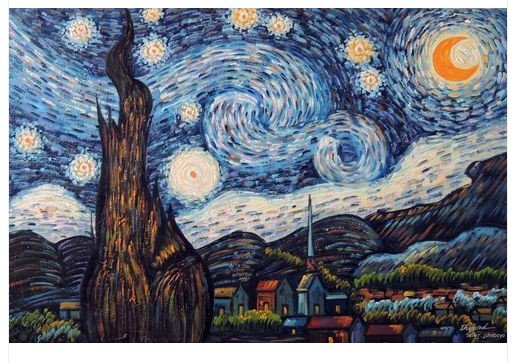As end-of-the-semester pressure mounts on my students, they are drawn to certain poems. One is Wordsworth’s “The Tables Turned,” which begins “Up! up! my Friend, and quit your books;/Or surely you’ll grow double.” Another is Walt Whitman’s “When I Heard the Learn’d Astronomer.” You’ll understand why as you read it:
When I heard the learn’d astronomer,
When the proofs, the figures, were ranged in columns before me,
When I was shown the charts and diagrams, to add, divide, and measure them,
When I sitting heard the astronomer where he lectured with much applause in the lecture-room,
How soon unaccountable I became tired and sick,
Till rising and gliding out I wander’d off by myself,
In the mystical moist night-air, and from time to time,
Look’d up in perfect silence at the stars.
What excites me most is the productive conversations the students have with the poem. Rather than seeing the poem as an argument against academic study–very tempting at this time of year–they interpret it as a plea for balance.In the eyes of those who wrote journal entries on it, the poem does not call us to choose either scientific analysis or mystical union. It calls for both/and.
I’ve already quoted Jordan McRae once this week, an impressive sophomore who is a double major in English and music and who in Tuesday’s post examined whether Uncle Tom is an Uncle Tom. The following excerpt from his journal represents liberal arts thinking at its best as Jordan uses “Learn’d Astronomer” to understand his relationship to music. Note how he also pulls in Dickens’ Hard Times, which was on our reading list as well. I’ve edited the excerpt slightly (but only slightly) since I allow my students to ramble in their journal entries:
To help relate to this poem, I thought back to when I was in my Music Theory III class. At this point I had finished Theory I and II, and I had learned an immense amount about theory, so I thought I was pretty well off. However, Theory III, while it reinforced tonality (the topic of Theory I and II), also examined the breakdown of the tonal system, which is the aim of Theory IV. My Theory III class constantly confronted me with standard chord progressions and techniques of voice leading, which eventually made me view music as a formula. I would start with a tonic chord, use predominant chords to get to a dominant chord, do a half cadence in a different key, then progress back to my home key, and finally finish with a strong cadence in the home key. After a whole semester of doing this, music ultimately became very formulaic. I wasn’t satisfied with this scientific approach to the art I loved, and ultimately I was “sick and tired” like the learn’d astronomer.
Despite being sick of the formulaic studying, however, the learn’d astronomer does not linger in his sickness but moves forward: “Til rising and gliding out I wander’d off by myself,/ In the mystical moist night-air, and from time to time,/ Look’d up in perfect silence at the stars.” The speaker has to get away from the technical side of his studies and wander on his own. He has to find his own path or ultimately he will hate the science or the art that he is studying. The speaker does not feel at peace until he is surrounded by the thing he loves: the stars…
Again, to relate this to my Theory III class, I began to be turned off of music because it was systematic (similar to Gradgrind’s “Facts, facts, facts”). I wasn’t able to truly enjoy the art form that I loved until I “wander’d off by myself.” To wander off, I participated in the jazz band and I joined the choir so that I could not only perform music but also to appreciate music for what it was.
Although Whitman leaves us with the speaker happily appreciating the stars, I do not believe that this is entirely what Whitman is trying to show us. I believe that Whitman ultimately wants us to balance theory and appreciation. If we simply have theory, we run the risk of becoming a Bitzer [the grade-grubbing student in Hard Times] or a programmable drone, someone who isn’t passionate either about the science or the art. Indeed, if we just wallow in music, we run the risk of not being “learn’d” at all, which is just as bad as being a Bitzer. Therefore, I believe we need to have an even balance of both theory and appreciation.
I was finally able to find this balance in my counterpoint class this semester. Counterpoint is the method of composing two melodies against each other, which is much harder than it seems. To do this very technical form of composition, it is necessary to be well “learn’d” in music theory, but you also have to really enjoy and appreciate what you compose. Personally, I find this class to be a great balance of the knowledge I learned in my theory classes and the experience that I have simply playing music. Like the learn’d astronomer at peace with the silence of the stars, I am at peace when I am able to compose something that is not only pleasing to my ears but to the ears of others.
To sum up, to really enjoy the science or art that you are involved in, there needs to be a balance between theory and appreciation, or ultimately you’re either left unsatisfied or you’re left “sick and tired.” Like the learn’d astronomer, I was finally happy when I was able to find my balance.


